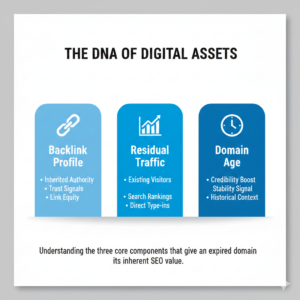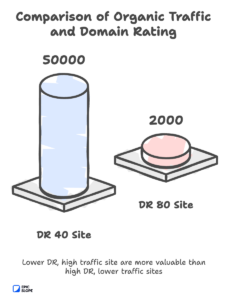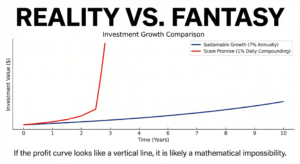Virtual Influencers: The Rise of Digital Personalities in Marketing
In the ever-changing digital marketing landscape, a new breed of influencers is taking the globe by storm: virtual influencers. These computer-generated characters are redefining the idea of influence, mesmerizing audiences with their immaculate looks, engaging personalities, and boundless creative potential.
– 8 mins

Virtual influencers are digital characters made with powerful computer graphics technology. They have distinct identities, personalities, and backstories, which make them approachable and interesting to their audience. Unlike conventional influencers, who rely on their physical appearance and personal experiences, virtual influencers provide an unprecedented amount of control and personalization.
Influencer marketing has swiftly risen to prominence as a formidable strategy in the digital marketing landscape. As social media platforms have become integral to daily life, influencers—individuals who have cultivated significant followings through their content—have emerged as powerful conduits for brand messaging. Understanding the multifaceted reasons behind influencer marketing’s success can provide valuable insights into why it continues to be a preferred choice for marketers worldwide.
How it started
The rise of social media
The proliferation of social media platforms like Instagram, YouTube, TikTok, and Twitter provided a space where individuals could build large followings by sharing content that resonated with audiences. These platforms democratised content creation, allowing ordinary people to become influential voices.
The shift in consumer trust
Consumers started to trust recommendations from individuals over traditional advertisements. Influencers, who often present themselves as authentic and relatable, can build strong relationships with their followers. Their recommendations are perceived as more genuine compared to traditional advertising, leading to higher engagement and trust.
The move towards targeted marketing
Influencers often have niche audiences that brands can tap into. This allows for more targeted marketing, reaching specific demographics that align with the brand’s target audience. Brands can leverage influencers to speak directly to these groups in a personalised manner.

Why influencer marketing works
Authenticity and trust
Influencers are perceived as authentic because they often share personal stories, experiences, and opinions, creating a sense of intimacy and reliability with their followers. Unlike traditional advertisements, which can be impersonal and overly polished, influencer endorsements feel more genuine. Followers see influencers as real people rather than distant entities, making their recommendations more credible. This trust is crucial, as modern consumers are increasingly sceptical of direct brand messaging and more inclined to trust peer recommendations.
Improved audience targeting
Influencers usually build their followings around specific interests and niches like fashion, fitness, technology, or food. This allows brands or physical local businesses, like children’s museums or tailors, to reach highly specific and engaged audiences likely to be interested in their products or services. By partnering with the right influencers, brands can tailor their marketing efforts to distinct demographics, increasing the relevance and impact of their campaigns. This targeted approach contrasts with broad-spectrum advertising, which can often miss the mark with uninterested viewers. Similarly, when it comes to mobile app retention, partnering with the right influencers can be a powerful strategy for keeping users engaged with an app over the long term.
High engagement rates
The interactive nature of social media platforms means that influencer content often generates high engagement rates. Followers actively like, comment, share, and participate in discussions, creating a dynamic and engaged community around the influencer. This engagement is valuable for brands, as it spreads their message further and fosters a sense of community and loyalty among potential customers. Engaged audiences are more likely to take action, such as visiting a website or purchasing, leading to higher conversion rates.
Social proof and credibility
When an influencer endorses a product, it acts as social proof, signalling to their followers that the product is worth trying. This endorsement leverages the psychological principle that people look to others to determine appropriate behaviour, especially in uncertain situations. If a trusted influencer uses and recommends a product, followers are likelier to believe in its value and quality. This social proof enhances the brand’s credibility and can significantly influence purchasing decisions.

Content creation expertise
Influencers are adept at creating content that resonates with their audiences. They understand the nuances of visual storytelling, effective communication, and platform-specific trends. Brands can leverage this expertise by collaborating with influencers to produce content and live streams that are visually appealing, engaging, and tailored to the audience’s tastes. This collaboration often results in higher-quality and more compelling content than what the brand might produce independently, enhancing the campaign’s overall effectiveness.
Viral potential
The nature of social media allows content to be shared rapidly, giving influencer campaigns the potential to go viral. Viral content can exponentially increase a brand’s reach, spreading awareness far beyond the influencer’s immediate followers. This organic reach is highly valuable as it can introduce the brand to new audiences without additional cost. Influencers often understand how to create content that resonates and is shareable, increasing the likelihood of virality.
Cultural relevance
Influencers are often trendsetters who shape and reflect contemporary culture. By partnering with influencers, brands can tap into current trends and conversations, ensuring their marketing remains relevant and timely. This cultural relevance is crucial for maintaining a positive brand image and staying connected with the audience’s evolving interests and values. Influencers can help brands navigate cultural shifts and position themselves as modern and in tune with their audience.
Community building
Influencers often cultivate strong, loyal communities around their content. They use professional email signatures to connect with their readers on different platforms. These communities are characterised by high levels of interaction and mutual support. Brands can tap into these existing communities to foster a sense of belonging and loyalty among their customer base. Engaging with these communities through influencers can create deeper emotional connections with the brand, leading to long-term customer loyalty and advocacy.
Moreover, investing in corporate event planning can further enhance these connections by providing memorable, in-person experiences that reinforce brand loyalty and community engagement.
Adaptability and flexibility
Influencer marketing offers a high degree of adaptability and flexibility. Campaigns can be scaled up or down based on the brand’s goals and budget, and strategies can be adjusted in real-time based on performance data. This flexibility makes influencer marketing accessible to large and small businesses, allowing them to experiment with different approaches and find what works best for their audience. It also enables brands to respond quickly to market changes and new opportunities.
Real-time analytics
One of the significant advantages of influencer marketing is the ability to track and measure campaign performance in real-time. Social media platforms provide detailed analytics, allowing brands to monitor key metrics such as reach, engagement, click-through rates, and conversions. Using a social media scheduling tool can help streamline the management of these campaigns, optimize content strategies, and improve overall campaign effectiveness. This data-driven approach enables brands to assess the effectiveness of their campaigns more effectively and make informed decisions. The ability to track performance also helps justify marketing spend and demonstrates ROI to stakeholders.
Why influencer marketing is a must
Influencer marketing’s popularity is driven by its ability to foster genuine connections, precisely target audiences, and generate high engagement through authentic and compelling content. As the digital landscape continues to evolve, influencer marketing is a versatile and powerful tool that helps brands build credibility, enhance their visibility, and foster long-term relationships with consumers. The ongoing success of influencer marketing underscores its effectiveness in meeting the demands of modern consumer behaviour and its role in shaping the future of digital advertising.

Ashley Nielsen earned a B.S. in Business Administration Marketing at Point Loma Nazarene University. She is a freelance writer who loves to share knowledge about general business, marketing, lifestyle, wellness, and financial tips. During her free time, she enjoys being outside, staying active, reading a book, or diving deep into her favourite music.





